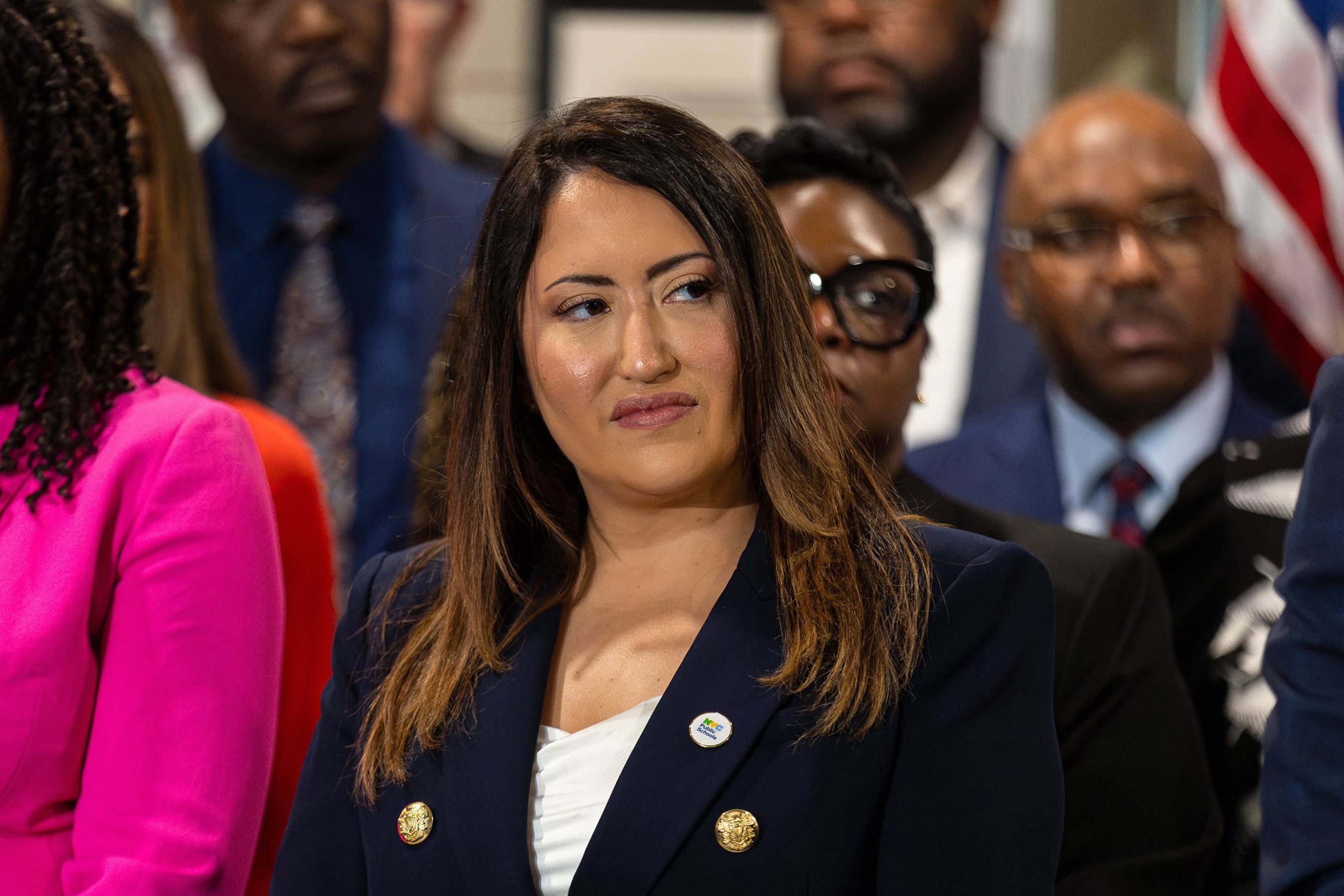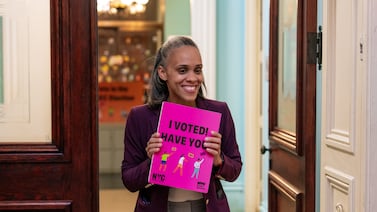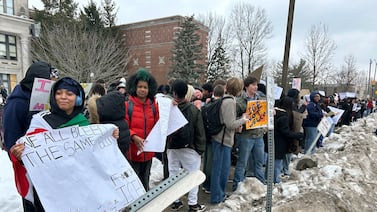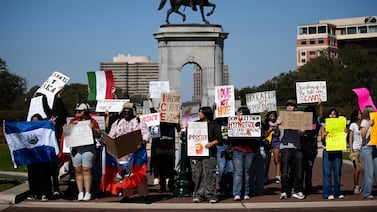Sign up for Chalkbeat New York’s free daily newsletter to get essential news about NYC’s public schools delivered to your inbox.
Ever since New York City’s mayor won control of the public school system more than two decades ago, the city’s chief executive has installed his own schools chancellor.
But frontrunner Zohran Mamdani said this week that he is open to ending that pattern by keeping Chancellor Melissa Aviles-Ramos, who was appointed by Mayor Eric Adams, at the helm of the nation’s largest school system.
The Education Department veteran was named chancellor one year ago after David Banks abruptly retired, and is widely respected by parents, school leaders, and the teachers union, which has publicly supported her.
“I think she has been doing a good job,” Mamdani told reporters Wednesday after he unveiled a proposal to recruit more teachers. “And I’ve said time and again that I will consider anyone on the basis of the work that they have done — not hold it against them as to who appointed them.”
During a mayoral debate Thursday evening, Mamdani again singled out Aviles-Ramos for praise. “Some of the initiatives that Mayor Adams has launched, especially with this chancellor, have been showing positive signs.”
Previous mayors have appointed new school chiefs after taking office to take the system in a different direction. Yet Mamdani has said little about his education vision and has praised Adams’ signature initiative to overhaul reading and math instruction. Keeping Aviles-Ramos could help those efforts stay on track, some education experts said, while avoiding a leadership transition in the middle of the school year. The next mayor will take office in January.
“Often, mayoral candidates are running against their predecessors,” said Aaron Pallas, a professor at Columbia University’s Teachers College. “Mamdani hasn’t articulated a very specific package of education policy reforms that would diverge considerably from the current administration.”
Mamdani’s chancellor search could be complicated by his vow to end mayoral control, which gives the mayor authority to appoint a schools chief and set policy for more than 1,600 public schools. He has proposed replacing it with a “co-governance” system that includes more feedback from families and educators, though he has not outlined a plan.
That could curtail the power of whomever he chooses to lead the system. Some experts said weakening mayoral control could also make it harder to pull off his pledge to offer universal child care, because it would require coordination with the Education Department.
Pressed during the debate Thursday, Mamdani did not indicate what specific power over the school system he would be willing to relinquish and seemed to suggest the mayor would retain an important role.
“I think the mayor needs to retain the accountability so that New Yorkers know exactly who they can come to when they have critiques,” Mamdani said.
Former Gov. Andrew Cuomo, who is running as an independent, and Republican Curtis Sliwa both criticized Mamdani’s proposal and said they would seek to keep that power, which must be regularly renewed by the state legislature.
Aviles-Ramos has a powerful ally
New York City’s teachers union has publicly supported keeping Aviles-Ramos in the role, especially as she has been open to relaxing the city’s curriculum mandates to give teachers more flexibility.
“She absolutely should be up for consideration for the work she has done,” United Federation of Teachers President Michael Mulgrew previously said. The union endorsed Mamdani in the general election after sitting out the primary.
Some families hope Aviles-Ramos will stay, noting that the chancellor has been receptive to parent feedback and foregrounds her identity as a Latina, a group that includes 42% of public school students.
“She speaks so openly about having a daughter who is school aged, having to navigate the system — that connects with a lot of parent leaders,” said Kaliris Salas-Ramirez, president of the District 4 parent council in East Harlem.
Salas-Ramirez added that “there is also some resistance with having a chancellor affiliated with Adams,” who has faced corruption charges and abandoned his bid for reelection as his polling remained in the single digits.
Mamdani has not offered many details about what he’s looking for in a schools chief if he is elected. Last month, he said he had not conducted any interviews.
Several other candidates have been floated, The New York Times reported, including Meisha Porter, who briefly served as chancellor under Mayor Bill de Blasio; Kamar Samuels, the superintendent of Manhattan’s District 3; and Rita Joseph, who helms City Council’s Education Committee.
Aviles-Ramos appeared to make a case that she should stay in the role during her “State of Our Schools” speech last month, some observers told Gothamist. She vowed to expand a program that supports homeless students that Mamdani has also said he plans to grow. And she touted surveys that show 92% of school leaders trust her at her word.
A spokesperson for Aviles-Ramos declined to comment on whether she has spoken with Mamdani or would consider staying in the role.
But in the final line of her speech last month, Aviles-Ramos suggested she is looking to the future.
“We are just getting started,” she said.
Alex Zimmerman is a reporter for Chalkbeat New York, covering NYC public schools. Contact Alex at azimmerman@chalkbeat.org.






